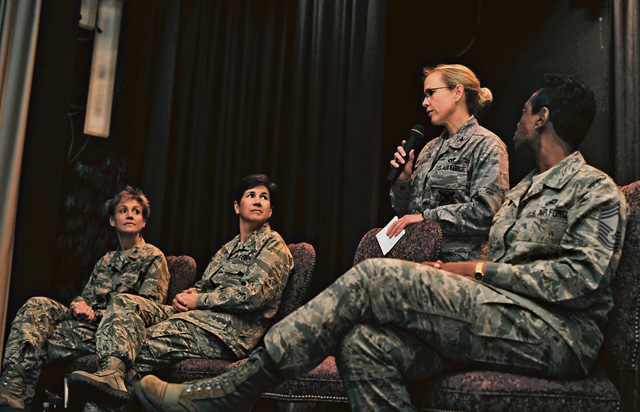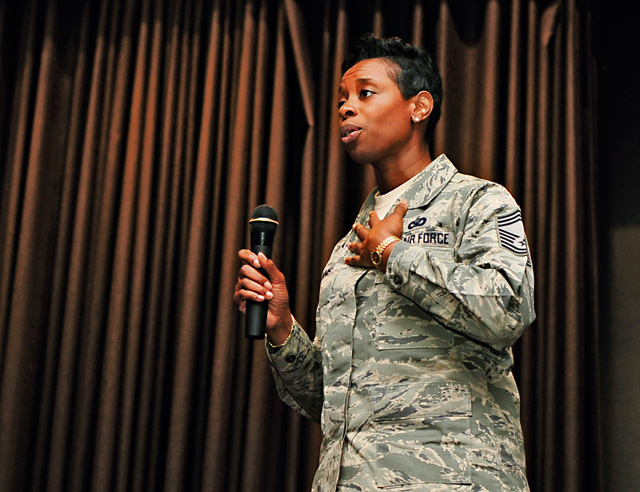
For as far back as history goes, equality between genders has been a struggle. Until 1920, women didn’t even have the right to vote in the U.S.
Though certain aspects of life may never be completely equal, the modern world has progressively strived for equality. Though the U.S. military has followed suit, it has not always been this way.
Before 1917, only men could serve in the military. Women’s roles were meant to be homemakers and caregivers while men went to war. Though a female-free military seems a thing of the distant past, certain male-dominated career fields are still adapting to support the mission with their female counterparts beside them.
During a Women’s Equality Day leadership panel, four of Ramstein’s leading women came together to speak with Airmen about their struggles, triumphs and the path they and their predecessors leave behind.
“Women continue to prove every day that they can do the same as men when it comes to the mission,” said Col. Laura Johnson, 86th Civil Engineer Group commander. “I think a lot of that has to do with the women who came before us. I think it’s very important to remember those women; they paved the way for us today.”
As a fighter pilot, Col. Andra Kniep, 435th Air Ground Operations Wing commander, shared stories of overcoming doubts her peers had of her.
“I graduated from the (Air Force) Academy two months after they began allowing women to fly in combat,” Kniep said. “I became the third female A-10 pilot in the Air Force. I was told I wouldn’t be able to do it, no one would want to marry a female A-10 pilot and I’d never have a family; I have all of those. I’m excited to see us breaking down those barriers.”
During the panel, Airmen had the opportunity to ask questions. Male Airmen attended to share their support as well as get the leaders’ perspective on how to interact better with their female troops.
“Treat women the way you would treat a man,” said Col. Nancy Bozzer, 521st Air Mobility Operations Wing commander, in response to an Airman’s question. “Make them earn their way all the way up to the top. There should be no difference in treatment. Should you be respectful to a lady? Yes. In return, she should also respect you back, with mutual respect and professionalism.”
Chief Master Sgt. Tamar Dennis, Kisling NCO Academy commandant, shared her experience of being in the male-dominated career field of security forces. She said as a young Airman, she felt the pressure of being a female amongst a majority of males.
“Early in my career, I felt like it was a competition, that I had to prove myself as a woman in the military,” Dennis said. “As my career progressed, my perspective changed, and I realized it wasn’t about proving myself to others but doing my job and proving to myself I could do it.”
The main message stressed by all four leaders was to not treat each other differently because of gender but as equals.
“Instead of focusing on treating women or men differently, we should be treating each other like Airmen, regardless of gender,” Dennis said.
The leadership panel was an opportunity for Airmen of all ranks to ask senior leaders personal questions about their experiences. The leaders said though things were more difficult when they first joined the Air Force, they’re glad to see more opportunities being offered to both genders. As a group continuously working toward equality, the Air Force has and continues to see great things coming from its Airmen.



